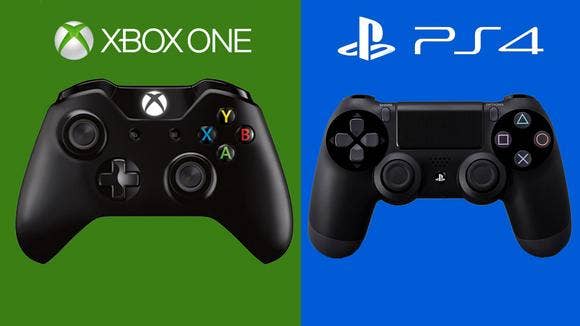Xbox One can still win the next console war
Chris Morris notes that "the embankment Microsoft faces is a lot smaller than it was a short time ago"
Coming out of E3, the momentum for the next generation was clearly on Sony's side. Microsoft, through a series of unpopular decisions and confusing, conflicting public statements, was quickly wearing down the goodwill it had built up with the Xbox 360 - at least among core gamers.
Within a week of the industry trade show's close, though, Microsoft started making changes - big ones - to win back the doubters, reversing its DRM and used game policies. Last week, those changes continued as the company changed its mind on indie game self-publishing. And with an estimated four months or so before the Xbox One hits shelves, who knows if Microsoft is finished?
There's still plenty of criticism from forum dwellers. But while it's easy to knock Microsoft for its early missteps, what a lot of people seem to be missing is that the company appears to be learning from its mistakes - and quickly. And that could help it stay on top in the years to come.
Learning from mistakes seems to be a common theme in the eighth generation of consoles. Sony has curried a lot of favor among gamers and developers for its decision to change the closed gate philosophy it has held for years, favoring partnerships, openness and accessibility instead with the PS4.
But because Microsoft's learning curve came later than Sony's, the company is being accused of simply playing catch-up to its competitor. That may be true, but since we're still very much in the pre-game for the next generation, it's not something that will have a lasting effect on the company.
"Leaders and followers don't mean much in the pre-launch days. What matters is post-launch execution"
Sony was forced to play catch-up this generation in the field of video streaming - after Xbox secured a deal with Netflix. But that hasn't stopped the console from becoming the top platform for Netflix streaming to television sets.
Put another way, leaders and followers don't mean much in the pre-launch days. What matters is post-launch execution.
There's also the possibility that Microsoft had at least some of these new policies planned long before they were announced. It's something that sounds ludicrous on the surface, I grant you, but I think back to something Yusuf Mehdi, Microsoft's chief marketing & strategy officer for the Xbox, told me at E3.
"As we get a chance to tell more of our story, more of the details will come out and things will start to self regulate," he said at the time. "We're going to be incredibly attentive to the ecosystem in the marketplace."
There will be a temptation for gamers - and the games media - to rush to call an early winner in the next generation, likely soon after the 2013 holiday season has ended. But a better barometer of how new systems are doing is a year or so post-launch, when supply constraints are less of a factor.
As Nintendo can testify, game sales are a critical factor in building an installed base in that period - and from what Sony and Microsoft have shown of their hands, Microsoft seems to be in a very strong position. The company has renewed its agreement with Activision for early access to Call of Duty DLC. Titanfall is coming next spring. And a new Halo installment is due in 2014 (almost certainly in November, if the company sticks to its usual mapping).
Sony's roadmap doesn't have those major milestones in place yet - and that could steer people to the Xbox One.
"We're just putting our shoes on to get to the start line of a long distance race"
Peter Moore
Don't discount the run the Xbox 360 has had at retail, either. Money wonks like myself are fond of the phrase "past performance is not indicative of future results". And it's certainly an accurate saying. At the same time, momentum is momentum. And Microsoft continues to have it. By identifying (and clearing) trouble spots before the Xbox One's launch, the company improves its chances of keeping that drive rolling.
Of course, there's still a $100 price difference between the two models - and that could be one of the toughest hurdles to clear for Microsoft. Third-party publishers were just as much caught by surprise at the price as consumers were - and weren't overjoyed by it.
And, of course, it was by offering a lower-priced product this generation that Microsoft was able to quickly get out in front of Sony. Now it finds itself in a reversed role.
But Microsoft has one thing working in its favor that Sony didn't seven years ago: Deep pocketed partners, including Comcast and AT&T. With the Xbox One's positioning as an all-inclusive entertainment device, many analysts expect the system to be subsidized by one or more of those partners - likely within the first year.
Peter Moore, chief operating officer at EA says: "We're just putting our shoes on to get to the start line of a long distance race."
The Xbox One is Microsoft's most important hardware launch of the past 10 years - and will likely be the most important of the next 10 as well. So performing well in that race is critical.
While the company may have made some mistakes in the pre-game, it has taken steps to correct those. The playing field may not be completely leveled, but the embankment Microsoft faces is a lot smaller than it was a short time ago.

